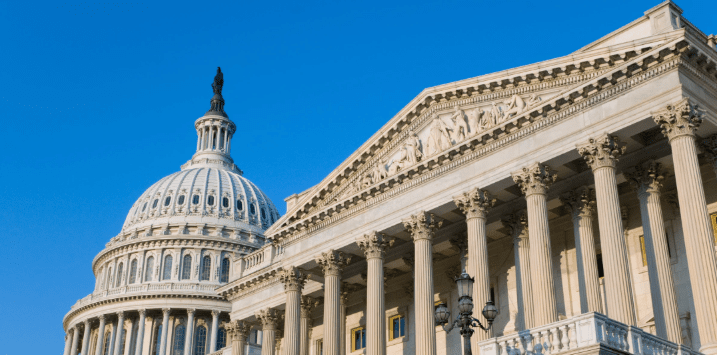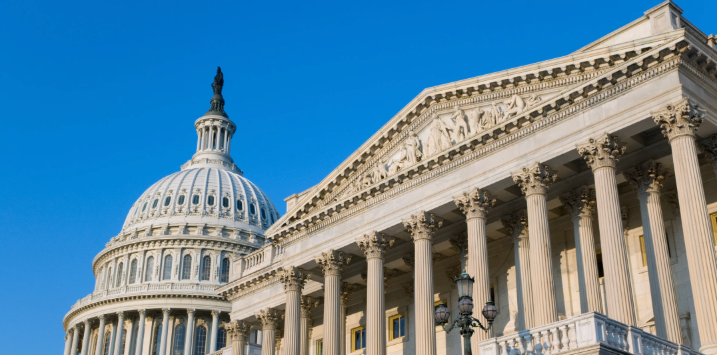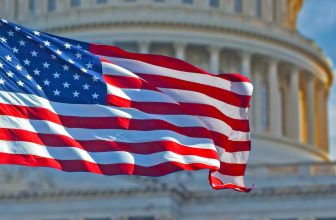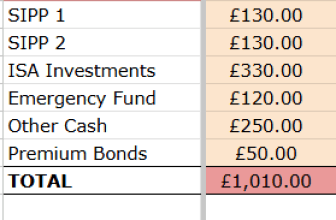

Trump’s systematic assault on U.S. democracy
The return of Donald Trump to the presidency has brought with it a series of actions and policies that systematically undermine the foundational principles of American democracy. Through executive overreach, legislative manoeuvres, and targeted attacks on institutional checks, the Trump administration is undermining voter rights, and the separation of powers. And by weakening judicial oversight, undermining academic freedom, stifling dissent, and eroding independent regulatory agencies, Trump has sparked widespread alarm among lawmakers, civil rights groups, and legal experts who warn of a concerted effort to dismantle checks and balances critical to the rule of law.
Drawing from recent analyses by Congressman Steve Cohen and the Campaign Legal Centre, here are the ways Trump’s efforts are reshaping the democratic landscape for the worse.
Assault on judicial authority
A particularly alarming provision buried in the recently passed “One Big Beautiful Bill Act” threatens the judiciary’s ability to enforce its rulings. Section 70302 of the 1,000-page budget reconciliation bill, narrowly approved by the House with a 215-214 vote, restricts federal courts from holding government officials in contempt for violating judicial orders unless plaintiffs pay a bond. This unprecedented requirement could render thousands of existing court orders unenforceable, shielding the Trump administration from accountability for illegal actions. Courts have ruled against the administration over 170 times, including blocking attempts to alter federal election rules. Critics, including the Campaign Legal Centre (CLC), argue this provision is a direct attack on the separation of powers, designed to insulate the administration from judicial oversight and weaken the rule of law.
Suppressing voter rights
The Trump administration has pursued policies that directly threaten the freedom to vote, a fundamental democratic right. The Safeguard American Voter Eligibility (SAVE) Act, passed by the House on April 10, 2025, imposes stringent documentation requirements for voter registration, which could disenfranchise millions, particularly people of colour, young voters, and the elderly who may lack access to specific documents. Over 21 million Americans could face barriers to registering under this law, which also threatens mail and online registration systems used by millions.
Additionally, Trump’s executive order on March 25, 2025, attempted to impose new voter registration rules, including an unconstitutional effort to end birthright citizenship, which would exclude certain citizens from the electorate. The Campaign Legal Center has challenged this order, arguing it violates federal law and the Constitution’s guarantee of equal participation in democracy. These actions don’t enhance election security but instead erect unnecessary hurdles to silence American voices at the ballot box.
Suppressing free speech and academic freedom
Trump’s legislative agenda includes measures that allow the administration to label nonprofits as “terrorist-supporting” and revoke their tax-exempt status. This vague and overly broad authority could be used to silence organisations critical of the administration, such as those advocating for environmental or social justice causes.
The move echoes Trump’s broader pattern of intimidating critics, including his attacks on media outlets and legal professionals. By stifling advocacy and dissent, the same policies weaken the pluralistic discourse essential to a healthy democracy.
Meanwhile, the administration’s crackdown on dissent has disproportionately targeted foreign nationals, particularly students and scholars, in what legal experts describe as an effort to chill free speech. Since March 2025, Immigration and Customs Enforcement (ICE) has detained or deported individuals like Mahmoud Khalil, a Columbia University student, and Kseniia Petrova, a Harvard cancer researcher, often without clear justification or due process.
Visa suspensions at universities such as the University of Memphis have left international students in limbo, even without involvement in protests. Congressman Steve Cohen condemned these actions as violations of First Amendment rights, and public outcry led to some visa reinstatements, though deportations continue.
Additionally, executive actions targeting elite universities like Harvard and Columbia, including threats to withhold federal funding and investigate tax-exempt status, have been criticised as politically motivated attacks on academic freedom. A federal judge in New York blocked punitive measures against Columbia, citing unconstitutional viewpoint discrimination. Fundamentally, universities higher learning institutions must be protected from political interference.
Undermining independent agencies
On February 18, 2025, President Trump signed an executive order requiring independent regulatory agencies like the Federal Trade Commission (FTC) to submit major regulations to the White House for review, a move seen as an illegal power grab.
Trump’s Executive Order 14215, titled “Ensuring Accountability for All Agencies,” seeks to extend presidential control over independent regulatory agencies like the Federal Election Commission (FEC). This order would undermine the autonomy of agencies that operate free from political influence, threatening their ability to oversee elections and other critical functions impartially.
The Democratic National Committee and others have filed lawsuits, arguing this erodes the independence Congress intended for these agencies. Such actions threaten democratic governance.
Manipulating elections through AI deregulation
Another provision in the reconciliation bill, Section 43201(c), imposes a 10-year ban on state and local laws regulating Artificial Intelligence (AI) in political campaigns. Over 20 states have enacted laws to combat AI-generated misinformation, such as fake content that misleads voters about candidates or election processes. By overriding these protections, the bill risks a decade of unchecked false information, is dangerous for the future of truth and trust in U.S. elections and undermines voters’ ability to make informed decisions and casts doubt on the validity of voting itself.
Additionally, the provisions not only threaten electoral integrity but benefit Trump’s allies in the tech industry by prioritising corporate interests over public safety and democratic trust.
Dark money
Trump’s policies have consistently favoured wealthy special interests, eroding transparency and accountability in governance. The “One Big Beautiful Bill Act” was passed through budget reconciliation to bypass Senate filibuster rules, a tactic criticised as a “Trojan horse” for enacting Trump’s agenda without proper scrutiny. This process limits public debate and transparency, allowing provisions that benefit Trump’s allies – such as tax breaks for the wealthy and deregulation for tech and energy firms to slip through.
Moreover, the administration’s failure to address dark money in elections exacerbates the influence of wealthy donors. Trump’s policies erode transparency in campaign financing, prioritising special interests over the public good.
Broader attacks on democratic norms
Trump’s executive orders have targeted law firms, revoking security clearances and contracts in apparent retaliation for their legal work against Trump.
Meanwhile, federal workers face intimidation through mass emails and terminations, with 77,000 probationary employees recently fired, though a federal judge ruled these actions unlawful.
Elsewhere, the closure of the U.S. Agency for International Development (USAID) and withdrawal from the World Health Organisation (WHO) have disrupted global aid and health initiatives, while rollbacks of Affordable Care Act protections and environmental regulations threaten public welfare.
The Trump administration’s decision to withdraw from the World Health Organisation (WHO), in particular, reflects a broader disregard for international cooperation and democratic norms. Cutting off U.S. funding for global health initiatives weakens multilateral efforts and signals a retreat from America’s role as a leader in democratic governance. Public health experts and bipartisan lawmakers have warned that this withdrawal undermines global stability.
Meanwhile, Trump’s efforts to dismantle the Department of Education, halt federal grants, and end birthright citizenship – blocked by a federal judge for violating the 14th Amendment – further illustrate a pattern of overreach and undermining.
As lawsuits build and U.S. federal judges issue injunctions to block many of these actions, the fight to preserve democracy continues. Civil rights groups, state attorney generals, and advocacy organisations challenge the administration’s overreach in court, while lawmakers push for legislative protections. Understandably, the Senate is being urged to reject the reconciliation bill’s anti-democratic provisions, and even the public is being called on to support efforts to uphold the rule of law.
The Trump administration’s actions – through executive orders, legislative proposals like the “One Big Beautiful Bill Act,” and attacks on institutional checks represent a systematic effort to undermine American democracy. And that will impact all of us. By weakening judicial oversight, suppressing voter rights, deregulating AI to enable misinformation, targeting free speech, politicising independent agencies, retreating from global democratic norms, and enabling corruption, these policies erode the rule of law and public trust.
Clearly, American democracy is facing these unprecedented challenges from a single man. Perhaps surprisingly, and worryingly, millions aren’t marching in the streets to demand this one man back down or be replaced.
While lawmakers, including Congressman Steve Cohen and organisations such as The Campaign Legal Centre, are fighting back through lawsuits and legislative efforts, the scale of the challenge and Trump’s constant bombardment of directives and announcements demand broader public awareness and action.
Democracy thrives on accountability, transparency, and participation – values that are under direct threat. I remain somewhat dumbfounded that U.S. citizens, advocates, and institutions aren’t stepping up more vocally to defend the system that ensures their voice is heard.






